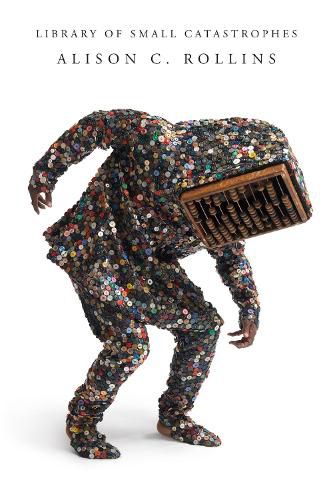Readings Newsletter
Become a Readings Member to make your shopping experience even easier.
Sign in or sign up for free!
You’re not far away from qualifying for FREE standard shipping within Australia
You’ve qualified for FREE standard shipping within Australia
The cart is loading…






Rollins’ debut is a book of dissonance, with race and women’s bodies proving two unyielding concerns throughout this four-part work. In poem after poem, Rollins demonstrates that she is finding her own way, shining a light, making darkness apparent.
Publishers Weekly
The range of Rollins’ poetic skill is remarkable. The result is a collection of poetry which is magnificently crafted, readable, and crucially important.
New York Journal of Books
, Alison Rollins’ ambitious debut collection, interrogates the body and nation as storehouses of countless tragedies. Drawing from Jorge Luis Borges’ fascination with the library, Rollins uses the concept of the archive to offer a lyric history of the ways in which we process loss. Memory is about the future, not the past, she writes, and rather than shying away from the anger, anxiety, and mourning of her narrators, Rollins’ poetry seeks to challenge the status quo, engaging in a diverse, boundary-defying dialogue with an ever-present reminder of the ways race, sexuality, spirituality, violence, and American culture collide.
$9.00 standard shipping within Australia
FREE standard shipping within Australia for orders over $100.00
Express & International shipping calculated at checkout
Rollins’ debut is a book of dissonance, with race and women’s bodies proving two unyielding concerns throughout this four-part work. In poem after poem, Rollins demonstrates that she is finding her own way, shining a light, making darkness apparent.
Publishers Weekly
The range of Rollins’ poetic skill is remarkable. The result is a collection of poetry which is magnificently crafted, readable, and crucially important.
New York Journal of Books
, Alison Rollins’ ambitious debut collection, interrogates the body and nation as storehouses of countless tragedies. Drawing from Jorge Luis Borges’ fascination with the library, Rollins uses the concept of the archive to offer a lyric history of the ways in which we process loss. Memory is about the future, not the past, she writes, and rather than shying away from the anger, anxiety, and mourning of her narrators, Rollins’ poetry seeks to challenge the status quo, engaging in a diverse, boundary-defying dialogue with an ever-present reminder of the ways race, sexuality, spirituality, violence, and American culture collide.